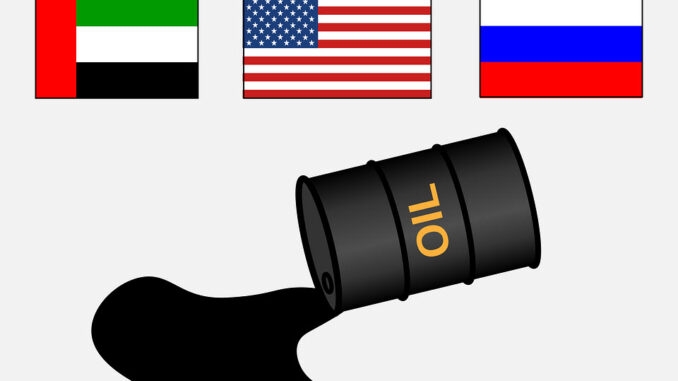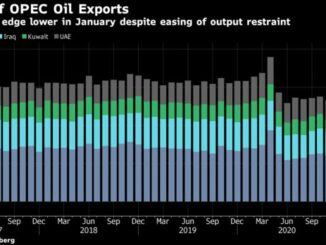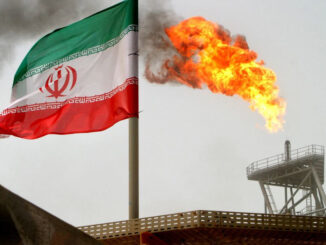
Energy News Beat Publishers Note (ENB): The fact that Russia relies on an estimated 35% of its GDP from exports from energy, they do not want to disrupt the revenue source. “Besides, instability in the Middle East could drive oil prices higher and is a boon for weapons exporters, both of which benefit the Russian bottom line.”
Israel and the Palestinian territories are engaged in their most intense bout of fighting in years, and there’s a major power not too far away with a recent string of successes brokering peace: Russia. The Kremlin is involved politically and militarily in Syria and Libya, mediated peace late last year in the Nagorno-Karabakh conflict, is involved in discussions over the future of Afghanistan, and has friendly diplomatic relations with Israel and dialogue with Hamas, which Moscow, unlike the United States and European Union, does not classify as a terrorist organization. But Russia has seemed unusually reluctant to step into the Israeli-Palestinian conflict, and the reasons reveal a lot about Russia’s domestic situation.
Russia has traditionally exerted significant influence on the Middle East conflict. The Soviet Union was vital to the creation of the map of the Middle East after World War II. In 1947, the USSR backed U.N. Resolution 181, which divided Palestine into an Arab and a Jewish state. And in May 1948, after the proclamation of the state of Israel, Moscow was first to recognize its independence and establish diplomatic relations with it. Years later, the Soviet Union supplied weapons in the first Arab-Israeli conflict with the help of Czechoslovakia, but its support faded until the final breakdown of diplomatic relations following the Six-Day War.
Today, Russia’s stance is that East Jerusalem should be the capital of a future Palestinian state, with West Jerusalem as the capital of Israel. Rather than try to bring Israel and Hamas to the negotiating table, however, the Kremlin has called for a meeting of the foreign ministers of the Middle East Quartet (Russia, the U.S., the U.N. and the EU). There are several reasons for this.
For one thing, Moscow has limited resources for something as fraught as wading into the Israeli-Palestinian conflict. A wrong step in this conflict could put Russia at odds with the West, where support of Israel has high political salience. The Russian economy depends heavily on exports and inflows of foreign currency, so the Kremlin very much wants to avoid giving the West another reason to sanction it. It also doesn’t want to risk tensions with regional power Turkey, which is increasingly quarreling with its NATO allies these days because of its warming ties with Russia. Besides, instability in the Middle East could drive oil prices higher and is a boon for weapons exporters, both of which benefit the Russian bottom line.
Second, there have been many previous attempts to resolve the Israeli-Palestinian conflict, and all have failed. Moscow is a permanent member of the U.N. Security Council and a member of the Middle East Quartet. It wants a sustainable and comprehensive two-state solution where Israel and Palestine could peacefully coexist. But it also knows that it is unlikely to be the mediator that solves this particular riddle. Rather than tarnish its image and waste political capital on a failed mediation effort, Russia prefers to involve the other concerned major players via the Quartet and the Security Council. At least this way Russia does not bear the burden of failure alone.
Finally, Russian President Vladimir Putin articulated the most important reason for Moscow’s diplomatic hesitancy when he described the conflict as being in the immediate vicinity of Russia’s borders and said it directly affects Russian security interests. To be clear, Israel and the Palestinian territories are almost a thousand miles from Russia’s borders.
For the rest of the story click here, and sign up for a Geopolitical Futures Subscription!



